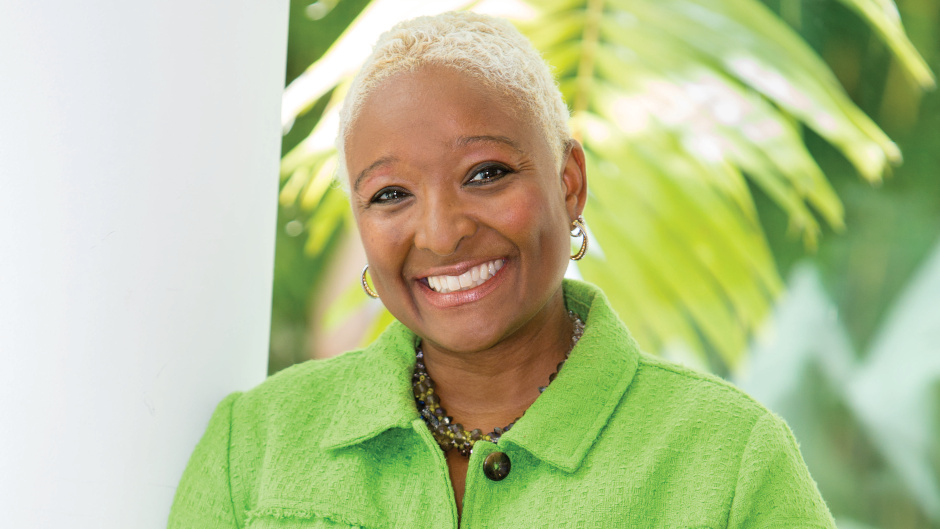On Tuesday, September 29, 2020, the Human Rights Society held its first event, “Human Rights & Tech Companies: Rights & Responsibilities in the Digital Age.” The event featured Professor Marcia Narine Weldon, whose teaching and research interests include corporate governance, employment law, regulatory compliance, corporate social responsibility, and the intersection of business and human rights. The event explored whether tech companies, their lawyers, and compliance officers have responsibilities to protect human rights, and the connecting implications for the public's mental health, political participation, and privacy rights. The lecture was co-sponsored by the Business Law Society, the Technology Law Club, the Human Rights Clinic, and the HOPE Public Interest Resource Center.
During her presentation, Weldon explained the connection between human rights obligations, tech companies, and potential ways to motivate corporate change. When it comes to respecting human rights, states have obligations based on laws and treaties, but companies do not. Companies’ obligations are completely voluntary. The UN Global Compact, which is the largest corporate social responsibility pact, encourages businesses worldwide to adopt sustainable and socially responsible policies. In general, companies will sign onto the compact because it will make them look good. However, not a lot of U.S. tech companies are members of the Global Compact.
Additionally, Weldon highlighted some of the top business human rights issues for 2020 as published by the Institute for Human Rights and Business. Specifically, she focused on four issues: (1) Purpose, (2) Fake News, (3) Surveillance, and (4) Worker Voices. The first issue surrounds the purpose of a company and how to redefine the role of corporations to align with societal expectations. Now, shareholder maximization is no longer the main purpose. Instead, companies must also invest in their employees, the environment, and ethical supplies. Second, the issue of “fake news” involves the need to harness collective power to combat lies and propaganda online, such as the silencing of scientists. Third, due to the rise of surveillance capitalism, there is a need to establish safeguards for new technologies that may undermine rights. Additionally, there are privacy rights around the world that are being violated by tech companies. Fourth, Weldon discussed the issues surrounding worker voices and defending the rights of assembly and speech at work, specifically in the context of employers being accused of silencing workers in relation to the Black Lives Matter movement. Furthermore, the discussion shifted to highlight labor issues surrounding the supply chain of tech companies and other big businesses, including the use of slave and child labor. Weldon encouraged the participants to watch “The Social Dilemma” documentary on Netflix that discusses the negative impacts and dangers of social media.
The event ended with a question and answer session, where Weldon and the participants discussed how to create positive change in tech companies and beyond. President of the Human Rights Society, Gita Howard, expressed gratitude on behalf of the Human Rights Society to Weldon for her time and expertise, the cosponsors, and everyone who attended the event.
“The Human Rights Society wanted to shed light on the idea that human rights is relevant to all fields of law, and to all lawyers. I hope that we will continue these important discussions surrounding the intersections of business, technology, and human rights in our Miami Law community,” said Howard.
“The subject of business and human rights is my passion. I was thrilled to be able to speak about these cutting-edge issues with the students and was pleased that they were so engaged and had such thoughtful questions. I hope that they will use this information to solve these problems whether they work in-house, in government, for the private sector, or for NGOs,” said Weldon.

